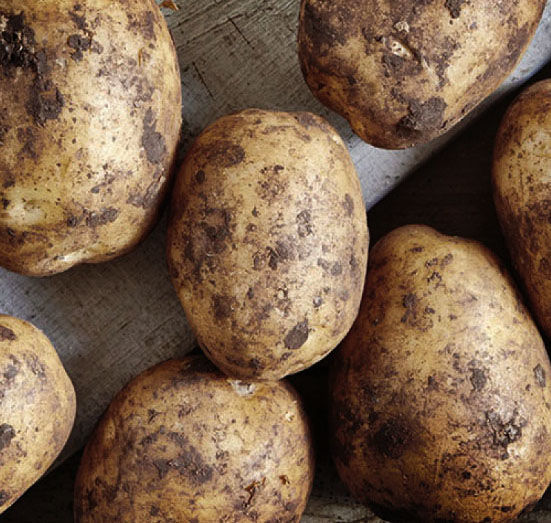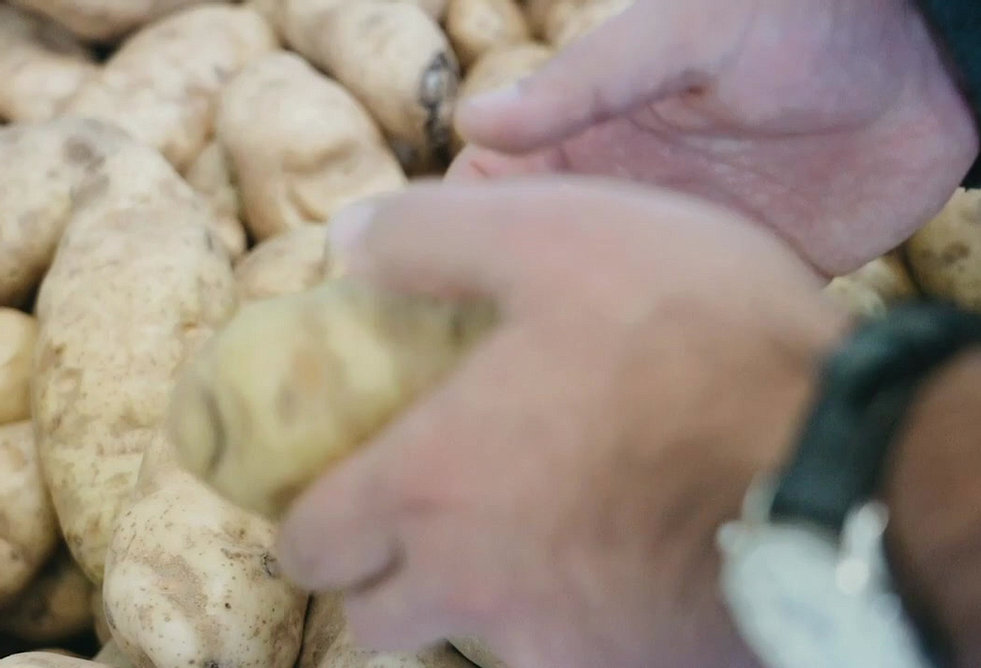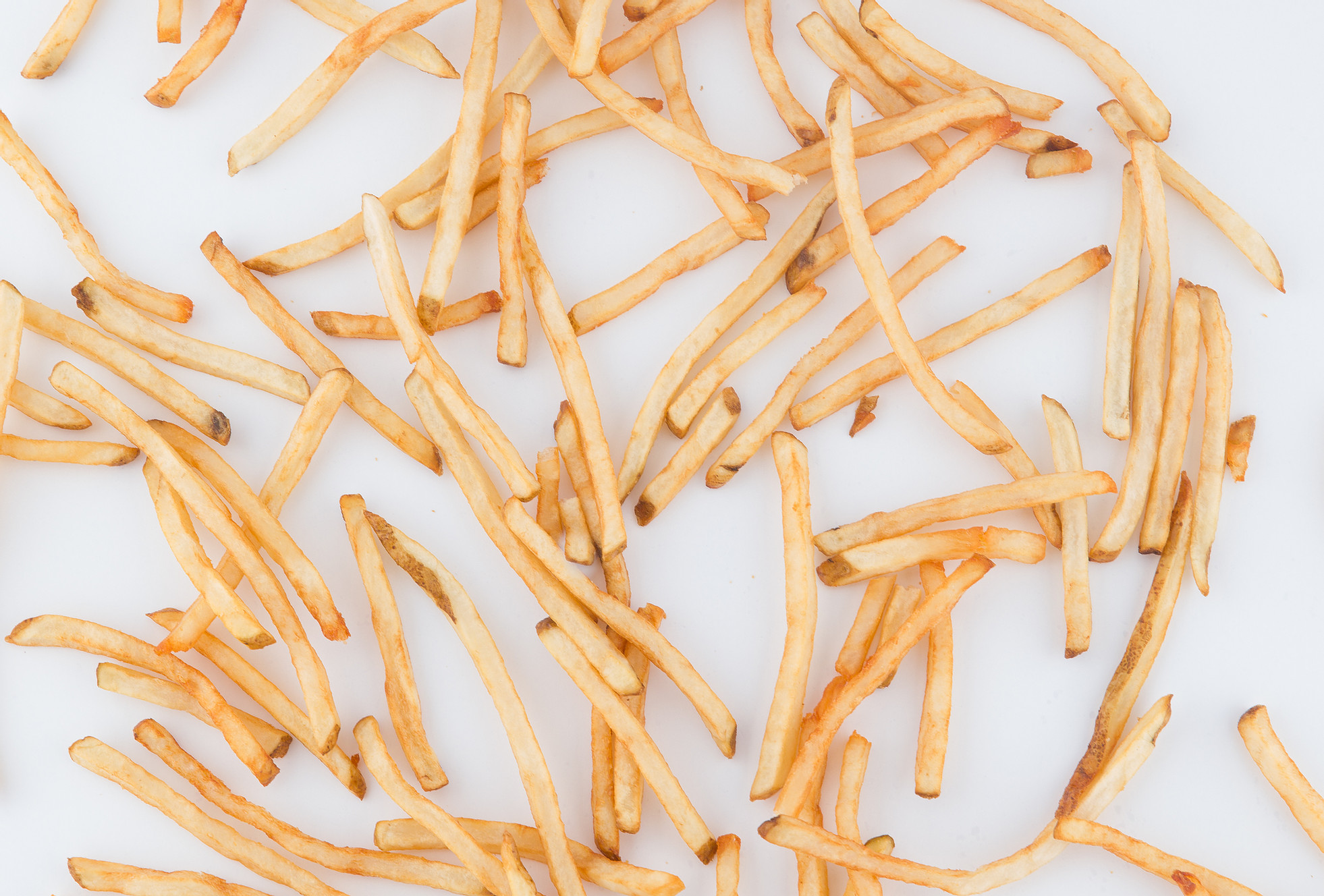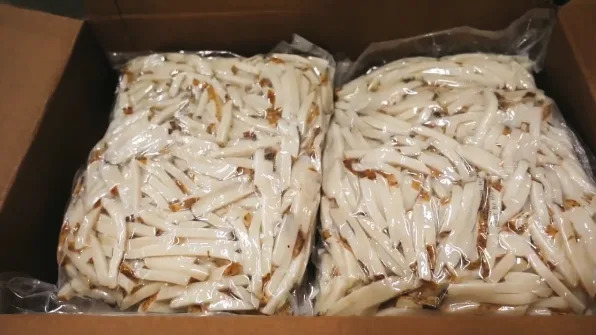
- Inspiring People -
- 4mins -
- 306 views
Freezer-free French fries fight food waste: New technology makes food last months w/o a fridge
By using sustainable, CO2-based technology, food-tech startup Farther Farms is revolutionising how food is processed, transported and stored, with the world’s first ever fresh-cut style, shelf-stable French fries.
Freezer-free French fries fight food waste
A new technology could help eliminate the need for cold storage. Upstate New York food-tech startup, Farther Farms, has developed a new type of pasteurisation that makes food last longer, so perishable foodstuffs can sit on a shelf without the need for refrigeration. As a proof of concept, the company made packaged french fries—a product normally sold frozen—that can sit at room temperature for 90 days before it’s eaten. Better still, the process eliminates the need for artificial preservatives.

FOOD technology FOR A GLOBAL SUPPLY CHAIN
Food technologies – such as canning and freezing – have enabled us to build a thriving world. However, with ever-increasing population growth, diminishing resources, and environmental pressures, the global community needs new ways to produce quality food affordably and reliably.
Farther Farms say they believe foundational innovation in food processing technologies is the key to food system transformation. The company bring to market platform solutions they say have myriad product applications that enable new product markets and create new categories to expand opportunities for growers, distributors, operators, and consumers.
Think of it like canning, but better. By replacing steam and hot water with reclaimable carbon dioxide, Farther Farms are able to lower the time and pressure required to make shelf-stable food. In effect, this allows them to make an appealing crispy fry instead of mashed potatoes.
No artificial preservatives, no oil, no pre-frying, no complicated ingredient labels, no special potatoes. Just all-natural regular potatoes, CO2, heat, and pressure makes the first ever shelf-stable fry from farm to ketchup.
Source: FartherFarms

Eliminating need for cold storage overcomes infrastructure limitations
From the potato fields of India to Cornell University, Farther Farms is the culmination of an international quest to solve the biggest issues facing our global food system.
As a third generation farmer, co-founder Vipul Saran experienced first-hand the devastating cost of food spoilage. In the hot Indian summers, farmers can lose half their harvest yield, as cold storage remains prohibitively expensive. A scientist himself, Saran set out to solve the problem.
Working with researchers and professors at Cornell University’s College of Agriculture and Life Sciences, Saran discovered a solution. Through a unique application of natural elements, he was able to achieve shelf stability without preservatives or additives.
By eliminating cold storage, he had overcome the infrastructure limitations preventing access to fresh produce around the world.
Thanks to interdisciplinary collaborative initiatives within Cornell, Saran met Mike Annunziata, a graduate of Cornell’s S.C. Johnson Graduate School of Management. Together they conceived of Farther Farms as a vehicle to commercialise Saran’s technology. With wide ranging applications throughout the food industry, Farther Farms begins its journey with the Natural Cuts French Fry – a fresh-cut, never-frozen French fry.
Source: FartherFarms

The tech could help stabilise the global food supply chain by reducing reliance on chilling
Shelf-stable French fries are only the start for Farther Farms. Their revolutionary food pasteurisation technology creates an entirely new category of packaged foods that unlock new markets and opportunities along the entire supply chain. The company’s technology uses CO2 at high pressures and moderate temperatures (“supercritical CO2”) as a key working fluid for pasteurisation.
Compared to the traditional use of high temperature steam or water, pasteurisation using supercritical CO2 protects the food’s integrity and nutritional value, ensures food safety, and extends shelf-life without the need for additional preservatives. The technology can work on many types of ready-to-eat and ready-to-cook foods, including fruits and vegetables, dairy, and meat and plant-based meat alternatives.
Wide adoption of the technology could help stabilise the global food supply chain by reducing reliance on freezing and refrigeration.
For restaurants and foodservice operations, the ability to move fries and other foods out of costly cold storage creates money-saving and money-earning opportunities. Freezer and refrigerator real estate can go to higher-value, higher-margin foods such as appetisers, desserts and specialty breads. In an industry operating on thin margins, Farther Farms’ shelf-stable fries hold broad appeal. What’s more, the fries can stay crispier up to 40 minutes longer than the average fry, perfect for restaurants and venues gearing up for summer.
“At scale, this innovation will completely change the processed potato space. I’ve sold billions of pounds of French fries in my career and from what I’ve seen, the demand for this product in new and existing markets will be hundreds of millions of pounds within five years, if not billions,” says Richard Porter, former president, Lamb Weston and board member, Farther Farms.
With over $10M in funding raised to date, and the initial success of its technology and pilot facility, Farther Farms’ path to making the biggest impact – on farmers, the foodservice industry and the food system at large – now shifts to scaling its French fry production capacity. The company is well positioned to scale up, with a team of more than 25 full-time employees grounded in food science, microbiology, engineering, finance and foodservice.
Source: PotatoNewsToday


